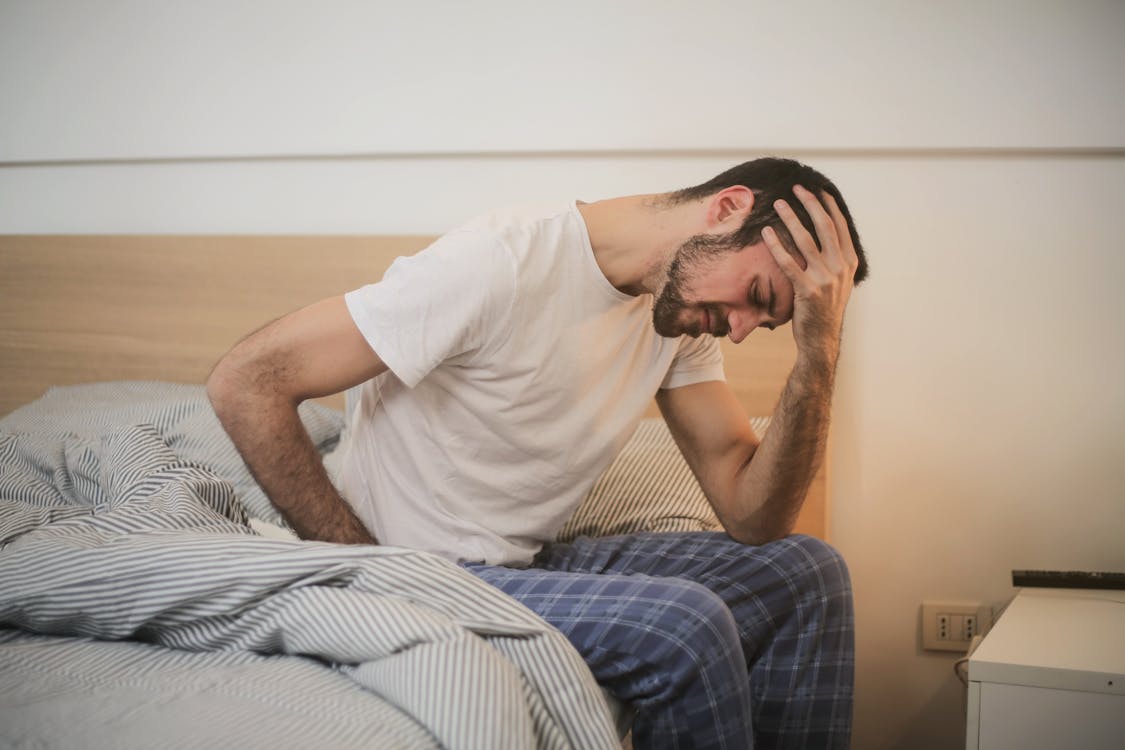How you feel when you wake up in the morning sets the tone for the rest of your day — and if you wake up with a throbbing headache, you’re off to a less than ideal start. While it is easy to write off a single morning when you woke up with a headache as an isolated incident, you may be understandably concerned if morning headaches become a recurring issue.
While there are many potential culprits behind recurring morning headaches, sleep apnea is one of the most likely causes. By understanding why you’re waking up with a headache in the morning, you can take action so you can sleep better and feel better each day.
Sleep Apnea and Morning Headaches

Research has found that 29 percent of people who suffer from obstructive sleep apnea also experience morning headaches related to their condition. It is believed that part of the reason for this is because of the loud snoring that is often associated with obstructive sleep apnea. Your brain is more sensitive to changes in sound while you are going through the stages of sleep, causing you to feel head pain in the morning.
Of course, the interrupted sleep caused by sleep apnea is also a contributing factor to the morning headaches. The brain’s hypothalamus helps regulate the sleep cycle and moderate feelings of pain. Sleep disturbances can also harm the hypothalamus’s ability to regulate pain, resulting in a morning headache. Constant interruptions also keep you from feeling fully rested, and those with sleep apnea will often experience a level of sleep deprivation similar to those who suffer from insomnia.
Studies indicate that tension headaches and migraines are more likely to occur if the body doesn’t get enough REM sleep. Failure to get REM sleep can actually cause the body to create proteins that contribute to chronic pain — greatly increasing the likelihood of a migraine. As a result, lower-quality sleep actually makes headaches and migraines more intense than they would be normally.
Other Common Causes of Morning Headaches

Sleep apnea is far from the only sleep disorder that can contribute to morning headaches. As previously noted, insomnia can result in significant sleep deprivation that increases the likelihood of a morning headache. Other common issues include circadian rhythm disorders, oversleeping, and bruxism (also known as teeth grinding). Improper sleep position can also increase tension, making a headache more likely.
Lifestyle choices may also make you more likely to experience morning headaches. The cliche of experiencing a severe headache after drinking heavily the night before is 100 percent true, as alcohol consumption leads to disrupted sleep and dehydration — and is often a trigger for migraines in and of itself. Certain over-the-counter and prescription drugs may also trigger headaches as a side effect in some individuals.
If you’re not sure why you keep experiencing headaches in the morning, start by examining your own sleep hygiene. Even simple things like setting a consistent sleep schedule, improving your sleep environment, and limiting alcohol and caffeine can improve sleep quality so you don’t experience headaches.
Of course, if you suspect that you have a sleep disorder, you should schedule a sleep study to get a concrete diagnosis. Whether you have sleep apnea or bruxism, getting treatment specific to your condition is vital for avoiding headaches and other consequences of poor sleep.
Treating Sleep Apnea to Stop Head Pain

If a sleep study determines that you suffer from obstructive sleep apnea, your first order of business is getting a CPAP machine to help you control this condition.
A CPAP machine provides a steady flow of air throughout the night, ensuring that your breathing passages don’t close off during sleep. The narrowing of your airways is what eventually cuts off the flow of oxygen and causes you to wake up. This also contributes to snoring associated with sleep apnea (a known contributor to morning headaches in and of itself).
CPAP machines are generally viewed as the most effective way to control sleep apnea, but there are a few other simple things you can do to mitigate its impact. Sleep apnea is closely linked with obesity, so making healthy changes to diet and exercise can help you shed a few pounds and reduce the severity of your condition. Sleeping on your side has also been found to help reduce sleep apnea symptoms, as opposed to sleeping on your back, which can make it worse.
Smoking and alcohol consumption can further irritate your airways, worsening sleep apnea symptoms. Alcohol also relaxes the throat muscles, making sleep interruptions more likely to occur. Those who are prone to sleep apnea should try to cut out these substances entirely.
Get the CPAP Equipment You Need
With a quality CPAP machine, you will be able to stop sleep apnea in its tracks, halting the interruptions that keep you from getting a full night’s rest. Of course, the cost of the CPAP machine and associated equipment like masks, tubing, and cleaning supplies can cause some people to think twice about their purchase.
Fortunately, you don’t have to choose between your budget and feeling rested and headache-free in the morning. At Help Medical Supplies, we offer a broad range of CPAP equipment from leading manufacturers at discounted prices. In addition, we also provide free shipping on all orders over $89, and financing is available on select purchases.
With affordable CPAP therapy, you can get the care you need to eliminate morning headaches and other negative health outcomes associated with sleep apnea. Place your order today to start enjoying the quality sleep you deserve.

